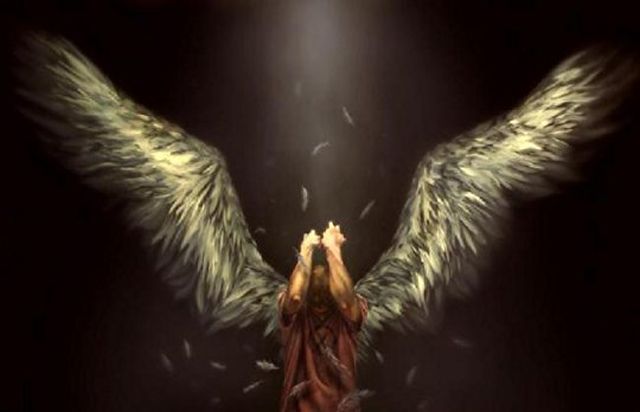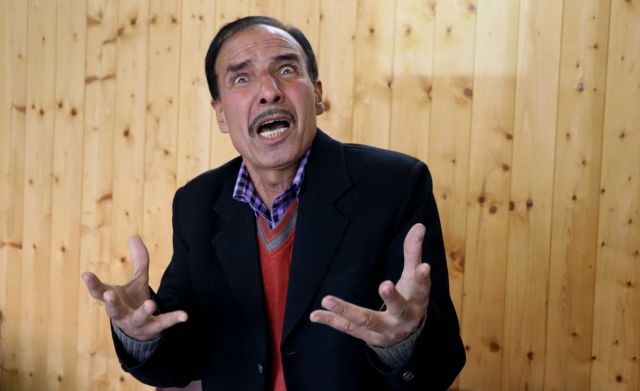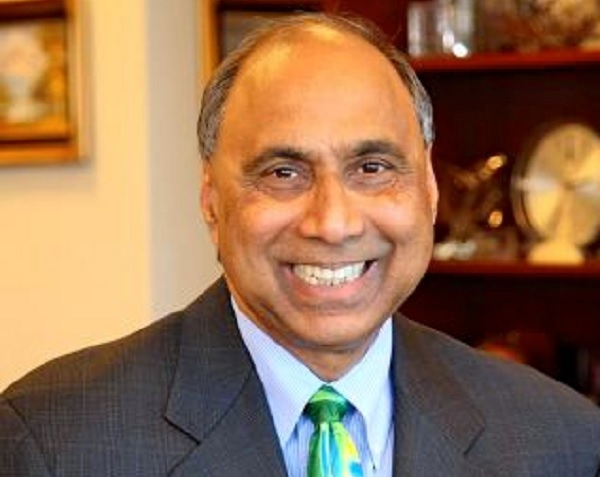
by admin | May 25, 2021 | News

Representational Image
By Mudita Girotra,
New Delhi : When Rambabu, a 27-year-old who worked in a ration shop in Patna, got to know he was suffering from brain tumor, he was devastated. But his nightmare was compounded when he travelled over a thousand kilometres in that condition to New Delhi for treatment only to find there was a waiting period of six months at the All India Institute of Medical Sciences (AIIMS) referral hospital.
He could not afford treatment at a private hospital and a wait of six months at AIIMS seemed as good as being on death row. It was in that moment of hopelessness that lawyer and community worker Ashok Agarwal came to his rescue and made him aware of the government policy under which people from the economically weaker sections (EWS) are entitled to free treatment at large private hospitals built on government land.
Not only that, Agarwal also got Rambabu admitted at the Max Hospital, Patparganj, where he has already started receiving treatment.
“He used to complain of excruciating pain in his head 24 hours a day. Doctors in Patna suggested he should be taken to Delhi, where we arrived on July 18,” Rambabu’s brother Shambabu, 35, told IANS.
“At AIIMS, we were given a date in December for his operation but his condition was deteriorating. No matter what he ate, he would eventually throw up. He needed urgent attention,” he said.
An acquaintance then suggested they speak to Agarwal who got a bed arranged for the tumor patient at Max Hospital.
Thousands of people like Rambabu have benefited from the provision of 10 per cent charity beds meant for the EWS category, Agarwal told IANS.
About four years ago, Agarwal came across an entire family in the Harijan Basti in south-west Delhi which were affected by a fire caused by a cylinder blast. Three small girls had their faces terribly burnt and their father had bandages all over on one of his legs.
Agarwal referred them to Gangaram Hospital were they underwent plastic surgeries. The father’s leg was so infected so it had to be amputated but had the operation not been done, he would not have survived.
“There have been a dozen such episodes where I randomly came across a suffering person who was not able to avail any health facility. They were referred to various private hospitals that come under the government policy of charity beds,” he said.
Every Saturday, Agarwal meets people who need similar help at his chamber in Tis Hazari court. He helps them fill up the declaration form stating they belong to the EWS category and can’t afford costly treatment. But it took several decades for the advocate and other activists like him imbued with similar altruistic passion to ensure that private hospitals adhere to government guidelines and don’t turn away poor patients.
It was in 1949 that the Central government decided to allot land to hospitals and schools at highly concessional rates so as to involve them in achieving the larger social objective of providing affordable health and education to people. In 2002, Agarwal filed a petition because private hospitals were not serving the poorer sections of society. In his petition, he said even those hospitals where the allotment letters clearly said that up to 70 per cent beds had to be reserved were not following the rules.
A 2007 judgment by the Delhi High Court said that hospitals had to pay hefty fines if they earn profits on beds that had to be reserved for the poor. In 2012, the Delhi government ordered hospitals to implement the Delhi High Court’s judgment under which they were bound to reserve 10 per cent of the beds — with all medicines and tests included — and 25 per cent of all out-patient consultations for the poor.
But even that was not enough because, while beds were reserved, there was a time when none of them were occupied due to lack of awareness among the poor.
In order to spread awareness, Kapil Chopra, who served as the president of Oberoi Group of hotels for five years, joined hands with Agarwal and simulcasted an audio recording about this provision over WhatsApp, which went viral.
While Agarwal’s battle for the poor was on, Chopra independently made efforts to make people aware and help them through his web portal to get treatment in private hospitals. He started a website charitybeds.com which gives real-time availability of over 650 beds in Delhi and NCR every day.
“We realised there is a big difference between issuing an order and its implementation. We thought why don’t we help in bridging the gap between government, patients and hospitals because it’s very difficult for a poor person to enter a big private hospital like Max and tell them it’s his right to get treatment there. It is very intimidating for them,” Chopra told IANS.
The website has been running for the past five years now and is administered by his associates Lalit Bhatia and Gagan Bharti who answer all queries of poor patients, counsel them, help them get to hospitals and also with all the required documentation.
“We help patients when someone calls us, we go to government hospitals and pick up patients from there, we help people reaching private hospitals directly. We help people who have BPL (below the poverty line) cards and people who do not have any card as they are not aware because they are so poor,” Chopra said.
“Finally, I can say that around 85 to 90 per cent of these charity beds are occupied today,” said Agarwal with some satisfaction.
(The weekly feature series is part of a positive-journalism project of IANS and the Frank Islam Foundation. Mudita can be contacted at mudita.g@ians.in)
—IANS

by admin | May 25, 2021 | News

Nazir Josh
By Sheikh Qayoom,
Srinagar : Long before it was infected by violence and its streets reverberated with sounds of slogans and gunfire, Kashmir was a place where one could hear laughter in every household in the evenings when Nazir Josh, Kashmir’s very own “Charlie Chaplin”, used to come on Doordarshan (DD), the national broadcaster, with his facial expressions of total bewilderment, the street impressions of a joker and strong Chaplinesque elements in his walking style.
In this conflict-ridden region where young people have grown up witnessing violence erupting in their public spaces on a regular basis, the 67-year-old comedy king of Kashmir says that revival of humour is the only way to bring back smiles and laughter to the stoic faces of Kashmiris deprived of a normal existence.
A local poet, script writer, director and actor, Josh is known to every household here just as “Jum German”, “Ahead Raza” and half a dozen other names based on the lead roles he has played in TV serials.
He ran regular comedy serials on the local DD which were very well received by every Kashmiri. But it was all brought to a halt when separatist violence broke out in Kashmir in the late 1990s. While he was never directly at the receiving end of the violence, in the grim, strife-torn Valley there was little space left for humour and satire, and he was left without any sponsors.
Josh believes that Kashmiris are facing many social and psychological problems which cannot be addressed by medication alone.
“People here need to unwind, and for that, humour and satire are the best avenues,” Josh told IANS.
He recalled how a local family had come to thank him for helping cure their mother of depression.
“The son of the lady being treated for depression told me his mother had laughed after a long time when she saw an episode of my comedy serial ‘Hazaar Dastaan’.
“The boy said when the family told the psychiatrist about his mother’s laughter, which came after long months of depression, the psychiatrist advised them to show her more episodes of the comedy serial. It completely cured the lady.”
Josh feels that in a place where curfews, shutdowns and street violence are a norm rather than an aberration, there is a genuine need for some laughter in people’s lives to sustain their sanity.
But as violence took centrestage in the Valley, Nazir Josh and his TV serials, which were based on social and political satire, had to take backstage.
The last TV serial based on social satire produced by him was “Jum German” in 1989. But it could not go beyond 25 episodes as the situation took a violent turn in Kashmir, Josh said, as he fixed his gaze at the clouds outside his central Kashmir Badgam district home.
A feeble winter sun was trying to make its way through the heavy clouds that preventing its rays from reaching the earth.
“This is the present situation. Heavy and dark clouds of gloom everywhere you go. Seventy per cent patients who visit various hospitals in the Valley are suffering from depression.
“There is no source of entertainment in Kashmir. Cinema halls have been closed. There is no local film industry as many other Indian states have.
“There is only one TV station in Kashmir and that too has not been doing anything to revive entertainment so that people are able to laugh tensions out of their lives,” Josh said.
He still remembers the good old days when Kashmiris would eagerly wait for humorous weekly TV dramas.
“I know of some local homes where womenfolk sold ornaments to buy TV sets so that they could watch my serial titled ‘Hazaar Dastaan’ which ran 52 episodes on the local DD channel between 1985 and 1987.
“The serial was a political satire on people in power in the state — their callous and casual approach to people’s problems was depicted through the serial.
“Some local politicians were disturbed by the popularity of the serial. They went to Delhi and complained to the central leadership that their position was becoming awkward because of this serial.
“After that complaint, each episode was first taken for a preview in Delhi with a Kashmiri translator. The preview committee said it was genuine political and social satire that needed to be encouraged,” Josh recalled.
Josh had started his career in the local theatre. In the beginning, we would stage plays at the village and district levels. In 1968, he staged a play at the Tagore Hall in Srinagar where a drama festival was organised by the state cultural academy.
He then wrote a play in 1973 for the television titled ‘Haier Kkr’. Its success encouraged him to write humorous serials regularly till 1989 — when violence brought down the curtains on entertainment and laughter in Kashmir.
He is not completely discouraged and says humour and satire can still be revived in Kashmir, provided the state and central governments support his work.
“We need at least production cost so that the past glory is regained. I am hopeful that, in the near future, better sense will prevail so I am again able to make Kashmiris laugh away their daily tensions through my TV serials,” Josh said.
He believes there is immense talent among local youth. “These young boys and girls need to be rigorously trained in acting and directing productions to ensure that theatre and TV serials do not die an unsung death here,” he said hopefully.
And he wants to re-create the past rather than merely become a wistful memory of the halcyon days of Kashmir.
(The weekly feature series is part of a positive-journalism project of IANS and the Frank Islam Foundation. Sheikh Qayoom can be contacted at sheikhqayoom@gmail.com )
—IANS

by admin | May 25, 2021 | Entrepreneurship

Frank Islam
Washington/New Delhi: The Frank Islam Foundation in Washington has joined hands with IANS, India’s largest independent newswire, for a media project that aims to tell some remarkable stories from across India, it was announced on Thursday.
Supported by the non-profit foundation started by prominent IT entrepreneur Frank Islam, these stories would challenge the public perception, question stereotypes and try to uncover the diverse, plural and inclusive India, both socially and economically, hidden behind the veil of the popular, sometimes unidimensional narrative about the country and its people.
“The project would focus on stories of social collaboration and communal harmony, of women’s empowerment and minority achievement, stories of those who fought against odds not only to improve their lives, but the lives of many others,” the US-based organisation said in a statement.
“Our collaboration will allow IANS to strengthen its coverage of such stories that focus on issues that concern the poor, the underprivileged and the marginalised of our country,” said Shibi Alex Chandy, Director, IANS.
The project will involve a team of passionate journalists who will travel to different parts of the country to unearth and tell these stories that are often missed or ignored in the hectic daily news cycle.
(IANS)



